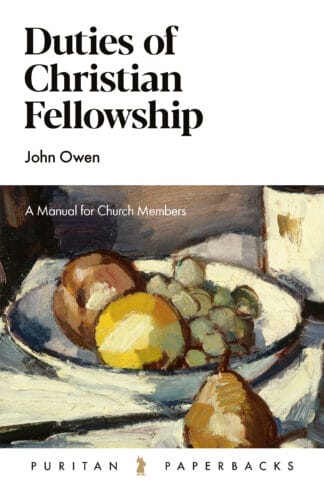Four Necessities for the Believer 2: Fellowship Around the Word
‘They were continually devoting themselves to the apostles’ teaching and to fellowship, to the breaking of bread and to prayer.’
–Acts 2:42
Why does preaching do so little to transform people in the pew?
When the Apostle Peter preached on the day of Pentecost, after the promised Holy Spirit had been poured out in fulfilment of Joel’s prophecy (Joel 2:28-32), his hearers were pierced in their hearts and cried out, ‘What must we do?’ Peter told them to repent and be baptized in the name of Jesus Christ for the forgiveness of their sins, and they would receive the gift of the Holy Spirit (Acts 2:38). From there Luke, the writer of Acts, tells us that the new converts were continually devoting themselves to the apostles’ teaching and to fellowship, to the breaking of bread and to prayer. The juxtaposition of these four necessities for each believer is not random nor happenstance, since these words were written under the direction and inspiration of the Holy Spirit. Note the coupling of the first two necessities and then the coupling of the last two necessities. They were giving themselves to the apostles teaching, that is the ministry of the word of God as it was being preached; and they were also giving themselves to fellowship. Likewise, they were giving themselves to the breaking of bread and to prayer. So the ministry of the word preached and fellowship go together, as do the breaking of bread (the Lord’s supper) and prayer. These four necessities are to be taken in pairs.
Surely you have noticed how almost without exception after the preaching of the word in our western worship services, when the benediction is given, the parishioners exit the church, perhaps saying to a friend how excellent the sermon was that they just heard. Or it is more likely that fellow brothers in the Lord begin talking about how their favorite football team performed the day before, going into some detail about how well or how poorly they played. Or perhaps they talk about a business trip one has coming up that week, or how their sons or daughters are doing with the travelling baseball team.
However, what you rarely hear is what Luke says was going on in the early church after the preaching of the word of God. They were giving themselves to fellowship. This, of course, begs the question, what does the Greek word koinonia (our English word fellowship is generally used to translate koinonia) mean? It does not mean Christians gathering together for a meal and enjoying each others company. It does not mean Christian brothers or sisters hanging out in a coffee shop or bar and talking about news, sports, weather, or politics. It is not even necessarily engaging in a couples’ Bible Study or discussing the sermon preached the previous Sunday. Of course, there is nothing wrong with these at all, but this is not fellowship.
Koinonia is defined as fellowship, association, community, joint participation, the share one has in anything. It is used nineteen times in the New Testament and the New American Standard translation translates koinonia as contribution twice, as fellowship twelve times, participation twice, and sharing three times.
So, in the context of Acts 2:42 the new believers were giving themselves to the teaching of the apostles and to sharing joint participation with one another in the word just preached.
In citing Deuteronomy 30:12, Paul the apostle, in the context of faith leading to righteousness or salvation, says, ‘Do not say in your heart, “Who will ascend into heaven?” (that is, to bring Christ down), or “Who will descend into the abyss?” (that is, to bring Christ up from the dead). But what does it say? “The word is near you, in your mouth and in your heart” — that is, the word of faith which we are preaching,’ (Romans 10:6-8).
In other words, do not waste your time contemplating who is in heaven or who is in hell. Focus on your present situation and your need. You can do nothing for anyone who has already left this world. Instead, says Paul, the word of God preached is near you, in your mouth and in your heart. He is urging the Romans to do something with the word of God they have been hearing preached to them. He is urging them to confess with their mouths that Jesus is Lord, just as they have been hearing; and he is urging them to believe in their hearts (the control center of their lives, from which every thing flows) that God raised Jesus from the dead. In so doing they will be saved.
So, the preaching of the word of God ought to result in the word being in our mouths and in our hearts, this word which is able to save, sanctify, and ultimately glorify. Note that Paul does not say the word should be in our minds. That is a given. We receive information through the mind, but Paul is after something far greater, something which transforms, not merely informs.
I wonder what would happen if after every worship service, after the preacher has poured out his heart in gospel preaching, appealing to the heart, mind, conscience, and will if he then said, ‘Now, I want you to break into small groups of five or six and spend ten minutes speaking the word you just heard into the hearts of one another. Don’t talk your favorite football team. Don’t talk your upcoming week in business. Instead, speak the word and its practical applications into each other until you get it and own it.’ This idea of fellowship in the word of God is replete in Scripture. We are to speak the truth in love (Ephesians 4:15), speak truth to our neighbors (Ephesians 4:25), encourage one another day after day while it is still called today (Hebrews 3:13), and to stir up one another to love and good deeds (Hebrews 10:24).
In most cases, it seems to me, preachers simply expound the text, sometimes quite brilliantly and cogently, without driving it home to the hearts of his hearers. Too often the people who receive the word are not transformed by it. They leave the word preached in the pew, in their minds, as it were, and go home with more information stored in their minds. They often continue, however, to be bereft of life-changing righteousness, peace, and joy in the Holy Spirit.
I urge you this coming Sunday, after the preacher concludes his sermon, to find a brother or sister or two and speak to each other the word you just heard preached. Speak it to each other until you get it and own it.
Al Baker is an Evangelistic Revival Preacher with Presbyterian Evangelistic Fellowship and can be contacted at al.baker1952@gmail.com
Of Further Interest

Duties of Christian Fellowship
A Manual For Church Members
Description
‘They were continually devoting themselves to the apostles’ teaching and to fellowship, to the breaking of bread and to prayer.’ –Acts 2:42 Why does preaching do so little to transform people in the pew? When the Apostle Peter preached on the day of Pentecost, after the promised Holy Spirit had been poured out in fulfilment […]

Description
‘They were continually devoting themselves to the apostles’ teaching and to fellowship, to the breaking of bread and to prayer.’ –Acts 2:42 Why does preaching do so little to transform people in the pew? When the Apostle Peter preached on the day of Pentecost, after the promised Holy Spirit had been poured out in fulfilment […]
Latest Articles
On the Trail of the Covenanters 12 February 2026
The first two episodes of The Covenanter Story are now available. In an article that first appeared in the February edition of the Banner magazine, Joshua Kellard relates why the witness of the Scottish Covenanters is worthy of the earnest attention of evangelical Christians today. In late November of last year, on the hills above […]
A Martyr’s Last Letter to His Wife 11 February 2026
In the first video of The Covenanter Story, which releases tomorrow, we tell the story of James Guthrie, the first great martyr of the Covenant. On June 1, the day he was executed for high treason, he coursed the following farewell letter to his wife: “My heart,— Being within a few hours to lay down […]
